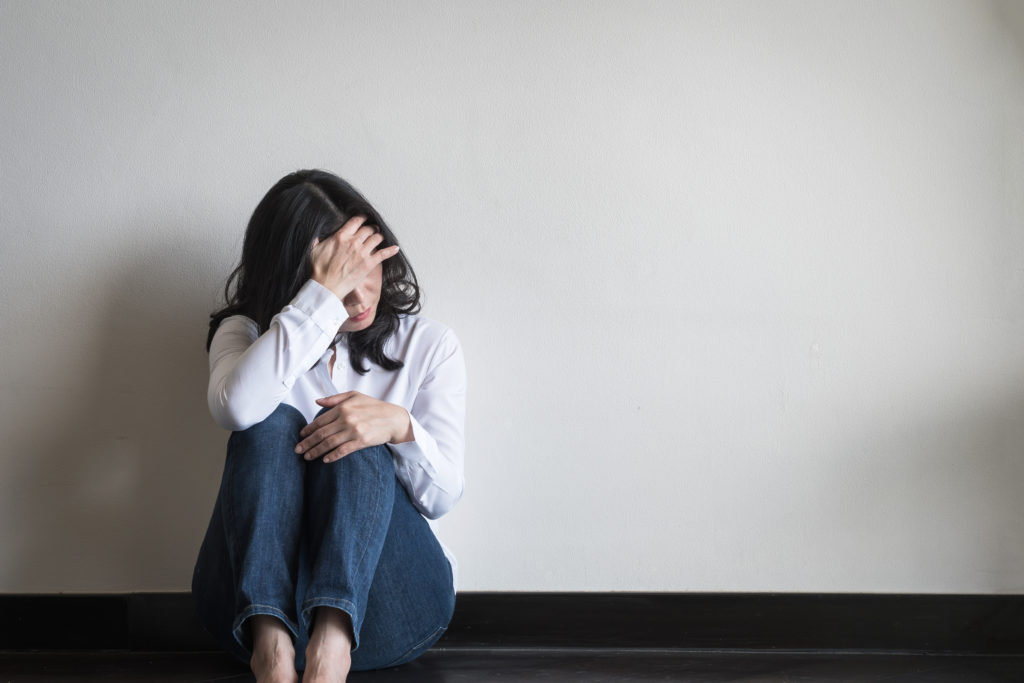All of us feel anxious on occasion. But sometimes, anxiety can occur on an ongoing basis for little or no reason. When it gets to this point, it’s time to reach out for help.
There are many people that are prone to anxiety, but statistics show that women are twice as likely to be affected. Approximately 14% of men have anxiety disorders compared to 23% of women. This article will look at anxiety symptoms in women and how anxiety can impact genders differently.
What are the Causes of Anxiety?
Here are some common causes of anxiety for women:
- Trauma: A traumatic experience that has happened to you at some point in your life, such as neglect, abuse, losing a loved one, and experiencing or witnessing a violent act.
- Life Factors: Negative situations such as stress at work or at home, money problems, or homelessness.
- Health Issues: Physical and medical health issues can cause anxiety. It can also be brought on by the medication you take to treat those issues.
- Genetics: People are more likely to develop anxiety, or another type of disorder if a parent or close relative is affected. This could be due to their DNA, or it could be due to the environment they were raised in.
- A Chemical Imbalance: When anxiety gets to disorder levels, it is typically due to a chemical imbalance in the body. The imbalance can be inherited, or it can come from any of the factors listed above.
Women are especially prone to anxiety due to the expectations of being a good mother, wife, or maintaining their careers. The risk can also be increased by brain chemistry and hormonal fluctuations. Women have also been shown to ruminate more about stressful situations than men.
Females are also more likely to be victims of sexual abuse, which can increase anxiety later in life.
What are Common Anxiety Symptoms in Women?
While women are more prone to anxiety than men, anxiety disorder symptoms in women do not differ much from the opposite sex. They include the following:
- Nervousness
- Irritability
- Panic and panic attacks
- Increased heart rate
- Hyperventilation
- Sweating
- Shaking
- Fatigue
- Difficulty sleeping
- Gastrointestinal issues
- Difficulty concentrating
- Sense of impending doom
How Does Anxiety Affect Drug Use?
Anxiety and drug use are often tied together. Many people who are dealing with anxiety and other mental illnesses are reluctant to reach out for the help they need. This may be due to a fear of stigmas, or they may not have the time or money to deal with the problem. Some may feel their anxiety isn’t that bad.
Instead of getting the help they need, they use drugs and alcohol to self-medicate. These illicit substances may temporarily relieve symptoms, but they make them worse in the long run. They can lead to addiction, causing the person to deal with two disorders; substance abuse and anxiety.
Fortunately, many rehab facilities take a dual diagnosis approach. This is a type of therapy that addresses the addiction and the mental illness causing the addiction. It offers a management strategy that’s conducive to long-term recovery.
How to Find an Anxiety Treatment Center in Southern California
There are several facilities that offer anxiety treatment in Southern California. These include those that will address co-occurring disorders of anxiety and addiction. If you are looking for one that’s right for your anxiety in women symptoms, Casa Serena is highly recommended.
Casa Serena is a nonprofit treatment facility for women. We are located in the beautiful Santa Barbara, CA area. We have over 60 years of rehab experience under our belt.
Our nonprofit status allows us to use our funding to find the best treatments available. We offer inpatient and outpatient programs. We integrate a variety of therapies, ensuring you get the customized care you require.
Anxiety symptoms in women are not pleasant to deal with, but they can be especially difficult if they co-occur alongside an addiction. Casa Serena can provide you with the tools you need to leave your disorders behind you. Contact us to find out how to move forward to a happier, healthier state of being with our mental health and outpatient addiction treatment for women.



